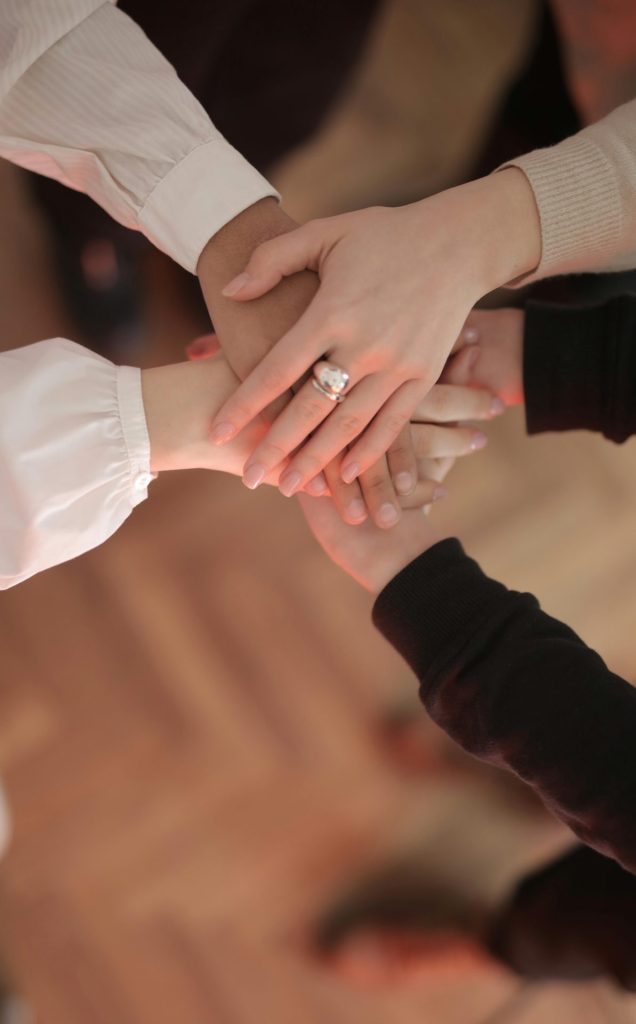The program VAWA has become a great immigration resource for victims of domestic violence. But despite this, there are still many questions among beneficiaries. One of the most frequent is whether VAWA affects the abuser. Therefore, today we will look at some frequently asked questions about VAWA and its legal implications.
At Jaskot Law we know what migrant victims of domestic violence go through. Often, economic violence makes it impossible for them to afford the legal help they need. That’s why we make sure to keep prices affordable for everyone who needs them. You are not alone. Contact us and receive legal assistance.
Table Of Contents
Does VAWA affect the abuser?
Yes, VAWA affects the abuser in multiple ways. This law imposes severe legal consequences on abusers and perpetrators of domestic violence related crimes. Some of the legal consequences include:
- Criminal Penalties: abusers can receive criminal penalties, including:
- Imprisonment
- Fines
- Mandatory counseling
- Probation (depending on the severity of the crime and their background).
- Cross-Border Criminal Liability: Offenders cannot evade punishment by crossing jurisdictional borders, ensuring justice for victims.
- Increased Penalties: Stiffer penalties are imposed on repeat offenders or those whose crimes involve firearms, including longer prison sentences and higher fines.
- Mandatory Detention Policies: Authorities are required to detain suspects of domestic abuse or mistreatment.
- Protective Orders: Restraining orders are issued that prohibit abusers from approaching or contacting victims in any way; violating these orders carries additional charges and penalties.
However, keep in mind that penalties and their application may vary by federal, state, and tribal jurisdiction. This affects the penalties your abuser would receive. Therefore, it is best to consult with an immigration attorney. He or she can advise you on how VAWA affects the abuser and guide you through the process. At Jaskot Law we can help you. Tell us about your case and get the quality legal assistance you deserve.
Will my abuser be notified of my VAWA petition?
No, the VAWA process is totally confidential and secure. This means that VAWA does not affect the abuser. It will never be notified that you have initiated VAWA proceedings. In addition, you will not be allowed access to your documentation or any type of communication between you and USCIS.

Moreover, the petitioner may include a safe address if he/she does not feel safe receiving the documentation at home. You only need to fill in the mailing address field of your application. In addition, you can report any change of address by following the instructions on the USCIS VAWA website.
What is a self-petitioner?
A self-petitioner under VAWA protection for victims of abuse is a person who applies for permanent residence in the United States without the support of a sponsor (spouse, parent or child). Recall that this program allows victims to file a petition independently to obtain legal protection and stability.
In this way, the abuser cannot be involved in the process. However, the legal implications of VAWA can be difficult to understand. For this reason, it is essential to have the help of an immigration attorney. You are not alone. At Jaskot Law we can assist you. Tell us your case and let’s defend your rights together.
Documentation required for VAWA
For the VAWA process, you will need to submit the following documentation:
- Form I-360: Petition for American, Amerasian or Special Resident.
- Proof of relationship: Documents showing the relationship with the abuser, such as marriage certificate, birth certificates, photos, joint leases, tax returns, etc.
- Evidence of abuse: Police reports, protection orders, medical reports, witness statements, letters from support organizations, etc.
- Proof of joint residence (if applicable): Documentation showing that you lived together, such as lease agreements, utility bills, correspondence addressed to the same address, etc.
- Proof of eligibility for adjustment of status: If you are applying for adjustment of status in conjunction with the VAWA petition, you must submit Form I-485 and the required supporting documentation.
- Personal statement: A written statement by the applicant describing the relationship, the abuse suffered and the impact on his/her life.
- Evidence of moral character: criminal record certificates, letters of recommendation, evidence of community activities, etc.
- Form G-28 (if applicable): Notice of Appearance as Attorney or Accredited Representative.
- Passport size photographs: Generally two, following USCIS specifications.
- Copy of identity document: Passport, official identification, or any document that proves the applicant’s identity.
Please note that USCIS may request other documentation if it deems the evidence submitted to be insufficient. Therefore, you should include any other supporting documentation that you consider relevant to the case. A lawyer can help you gather the necessary documents. Contact us and let’s get your paperwork in order.
What is the VAWA process like?
The VAWA process can be summarized in the following steps:
1: Collection of Necessary Documents
Obtain and organize all required documents. This includes, but is not limited to, evidence of the relationship with the abuser, evidence of the abuse suffered, evidence of joint residence (if applicable), and any other relevant documents mentioned in the list above.
2: Completing Form I-360
Complete Form I-360 (Petition for Alien, Amerasian or Special Resident). Be sure to fill out all fields accurately and completely. This form is critical and any error or omission may complicate the success of your request.
3: Preparation and Submission of the Petition
Attach all required documents to Form I-360. Once done, send the completed request to the address indicated in the request instructions. Please note that, if deemed necessary, USCIS may request additional supporting documentation.
4: Review and Processing
Once USCIS receives your petition, it will review it to determine if you have provided the proper documentation and meet all the requirements. Please note that you may be sent a receipt notification to confirm that your request has been accepted and is being processed.
5: Status Follow-Up and Interview (if applicable)
Once your petition is processed, USCIS will schedule an interview if necessary. Keep regular track of the status of your case through the online system. In addition, it is recommended that you prepare to discuss your case with the USCIS officer and submit any additional documentation requested.

Please note, depending on your case, there may be some extra instances. In addition, any errors or omissions in the required documentation may delay or complicate the process. Therefore, it is best to seek the assistance of an attorney. At Jaskot we are here for you. Tell us about your case and get the legal assistance you need.
How long does it take to process a VAWA application?
The processing time for a VAWA petition varies but generally can take several months to over a year from filing to final adjudication. Factors such as USCIS workload and the complexity of the case may influence the length of the process.
However, the most common causes of delay are errors in filling out the Form I-360 and lack of supporting documentation. This is why it is best to consult with an attorney to avoid delays in an already lengthy process. At Jaskot Law we can help you. Contact us and secure your VAWA process.
Can I obtain residency through VAWA?
Yes, you can apply for residency through VAWA protection for victims of abuse. The process is carried out through the status adjustment process. However, applicants must meet the following requirements:
- Have an approved or pending VAWA self-petition (Form I-360).
- Be able to demonstrate having been a victim of domestic violence (and thus merit a favorable exercise of discretion by USCIS).
- Be physically present in the U.S. by filing Form I-485 (Application for Adjustment of Status).
- Be eligible to receive an immigrant visa.
- Have an immigrant visa available at the time the Form I-485 is filed and when USCIS makes a decision on the application.
- Not be subject to any adjustment prohibition.
- Be admissible to the U.S. for permanent residence or be eligible for a waiver of inadmissibility.
If you have questions about your eligibility for VAWA residency, we can help you. Our attorneys can advise you on other legal avenues to permanent residency. Don’t let the difficulties of the system keep you from living the American dream. Tell us your case and take the first step towards your green card.
Do I have to stay married to the abusive spouse until my application is approved?
No, you do not need to remain married to the abusive spouse until your Form I-360 is approved. You can file even if you are no longer married to the abusive spouse. However, it must meet the following exceptions:
- You believed you were legally married to the abusive spouse, but the marriage is not legitimate.
- The abusive spouse died within 2 years of filing the petition.
- The abusive spouse lost or renounced his or her citizenship or permanent resident status due to an incident of domestic violence.
- Your marriage to the abuser ended within 2 years prior to the filing of your petition, and there is a connection between the termination of your marriage and the abuse or extreme cruelty.
Therefore, it is advisable to seek legal advice to better understand these provisions. Don’t risk your application by navigating the immigration system on your own. At Jaskot Law we can help you. Tell us your case and get the legal help you need to defend yourself against your abuser today.
What happens if my request is denied?
If your request is denied, you may file an appeal. To do this, you must file a Notice of Appeal with the required fee with the Vermont Service Center. You will have 33 days after receiving the denial. Your appeal will be sent to the Office of Administrative Appeals in Washington, where they will decide whether or not to approve it.
Please note that the appeal process is difficult and your stay in the United States depends on it. If rejected, deportation proceedings may be initiated. Therefore, it is best to seek the assistance of an immigration attorney. At Jaskot Law we can help you. Contact us and get the professional assistance you need.
Can I apply for VAWA if I am a man?
Yes, both male and female victims of domestic violence can file an application for a submit an application. VAWA laws in the United States apply equally to all applicants, regardless of gender.

Can a divorced spouse seek help through VAWA?
Yes, a divorced spouse can seek help through VAWA. However, in order to do so, it must meet certain requirements:
- The marriage ended within 2 years before filing Form I-360.
- Demonstrate extreme abuse or cruelty.
However, if you cannot prove this connection, you can still apply for cancellation of removal as an abused spouse. But to do so, it must meet other requirements. Therefore, it is best to consult with an immigration attorney. At Jaskot Law we can help you. Tell us about your case and take the first step towards legal status in the United States.
Legal Aid for Victims of Domestic Violence
As we have seen, VAWA protection for victims of abuse is a safe way out of a domestic violence situation. The process is confidential and is designed so that the abuser does not have access to any sensitive information. However, this is not a simple procedure.
The documentation, waiting times and legal implications of VAWA make this an extremely difficult process. Therefore, it is best to seek the assistance of an immigration attorney. A professional can accompany you every step of the way, avoiding mistakes that could cost you your status. Do not risk your application. Talk to a lawyer and get VAWA protection.
Sources
USCIS – Questions and Answers: Abused Spouses, Children and Parents under the Violence Against Women Act (VAWA)
USCIS – Abused Spouse, Children and Parents (Form I-360 for VAWA Self-Petitioners)
USCIS – Permanent Residency for VAWA Self Petitioner
Other resources
VAWA: The Complete Guide to Understand How It Works
Complete list of Documents to apply for VAWA
Applying for VAWA residency: How is it done and how long does it take?
I was denied a VAWA visa: What do I do now?
Form I-485: Step by step to apply for permanent residency
VAWA and T Visa: Which is the best option for victims of domestic violence?
How VAWA Protects Victims of Economic Violence
What is a VAWA derivative, and how is it included in the petition?
What crimes does the VAWA visa waive for its beneficiaries?
Can I leave the United States if I have a VAWA visa?
What is the waiting time to obtain a VAWA work permit?

